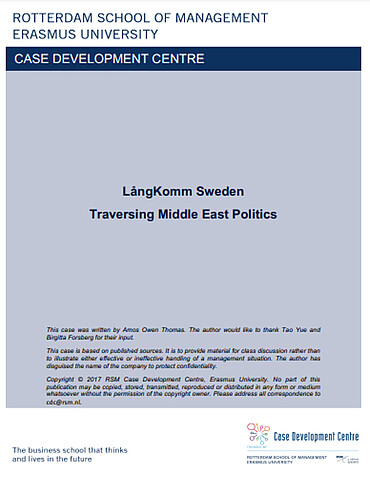Abstract
The in-coming Social Democrat-Green coalition government in Sweden cancelled a decades-long arms treaty with the Saudi Arabia, on the grounds of the latter’s questionable human rights record. While the decision was applauded by civil society at home and abroad, it caused consternation in the defence industry in Sweden over the resultant decrease of nearly 15% of its annual turnover and potential loss of thousands of jobs in towns where this industry is the major employer. The firms involved in the sales have to make contingency strategic plans, ranging from lobbying the government to honour existing contracts and finding other ways to supply the arms that circumvent the policy, or even to marketing their products to new clients for alternative uses. Each alternative has their respective implications for Swedish economy and global society as well potential risks and benefits to the firms which need to be evaluated carefully.
Citation Note
Based on field research; 10 pages. Follow the 'handle' link to access the Case Study on RePub. For EUR staff members: the Teaching Note is available on request, you can contact us at rsm.nl/cdc/contact/ For external users: follow the link to purchase the Case Study and the Teaching Note.
Objective
1. To analyse the differing legal, political, social, ethical and economic environments of home and host countries and evaluate their impact on doing business internationally; 2. To generate and prioritise alternative market, product, promotion and entry strategies when faced with an unexpected contingency in one or more of the environments; 3. To anticipate, assess and manage potential risks and benefits of each strategy to the firm’s ethical reputation and long-term performance.
